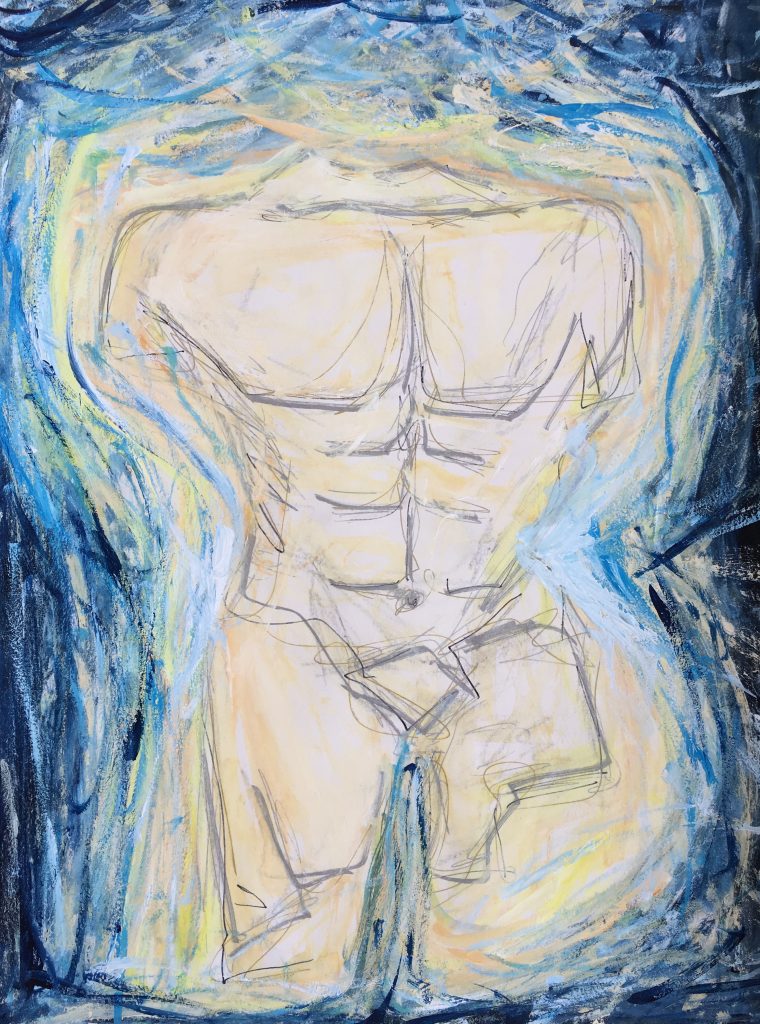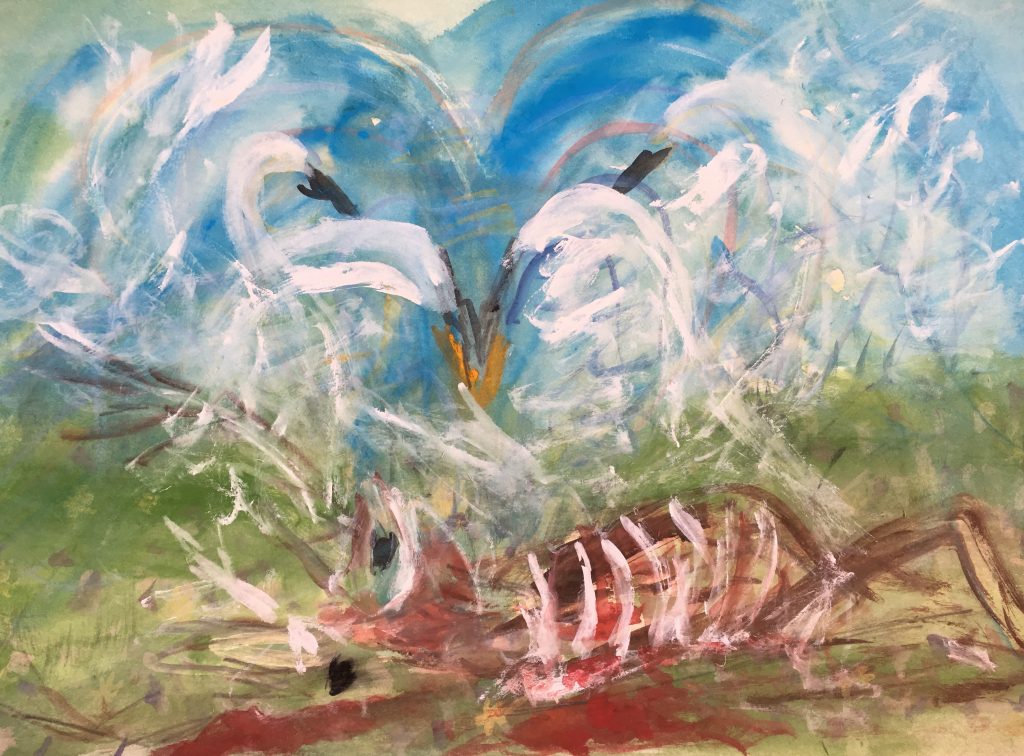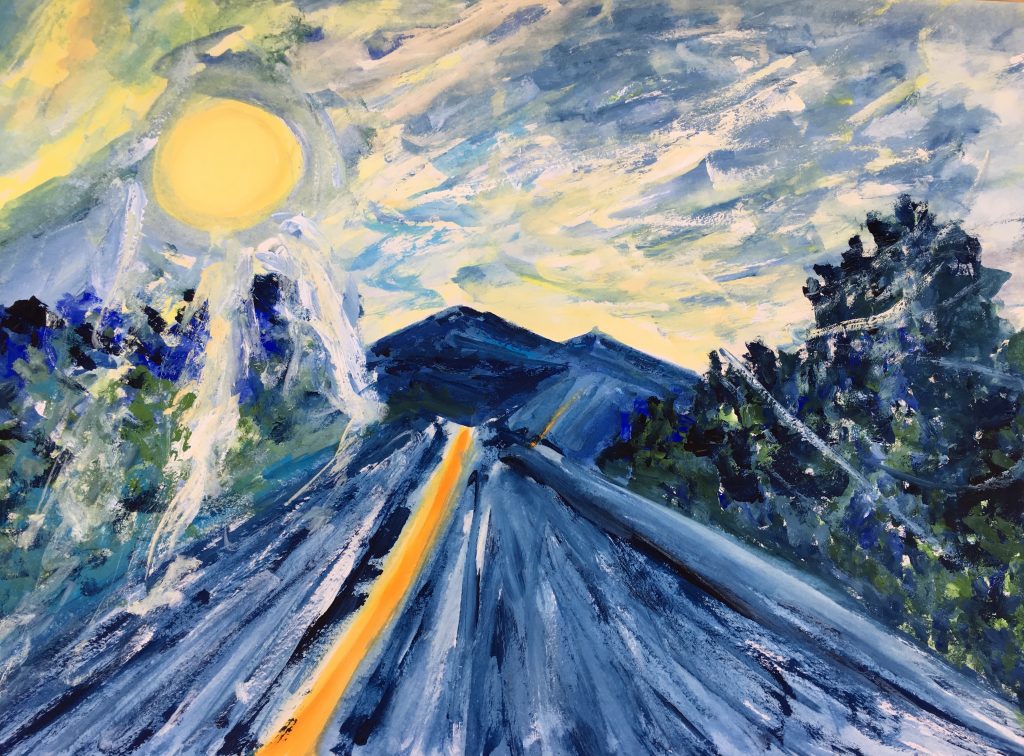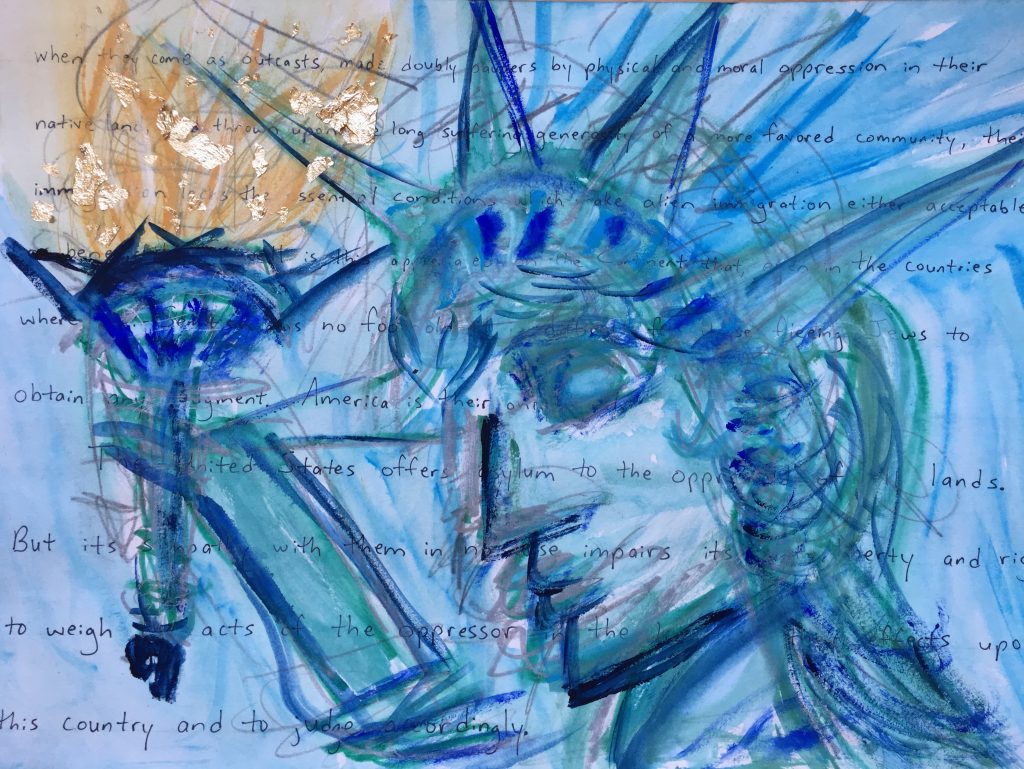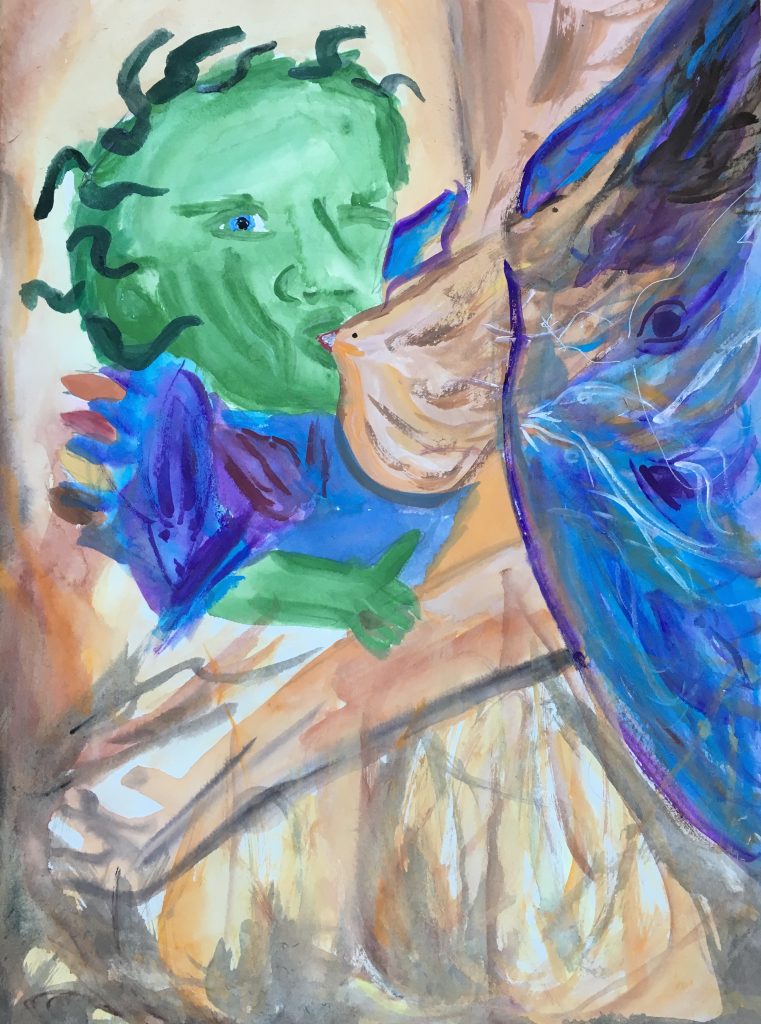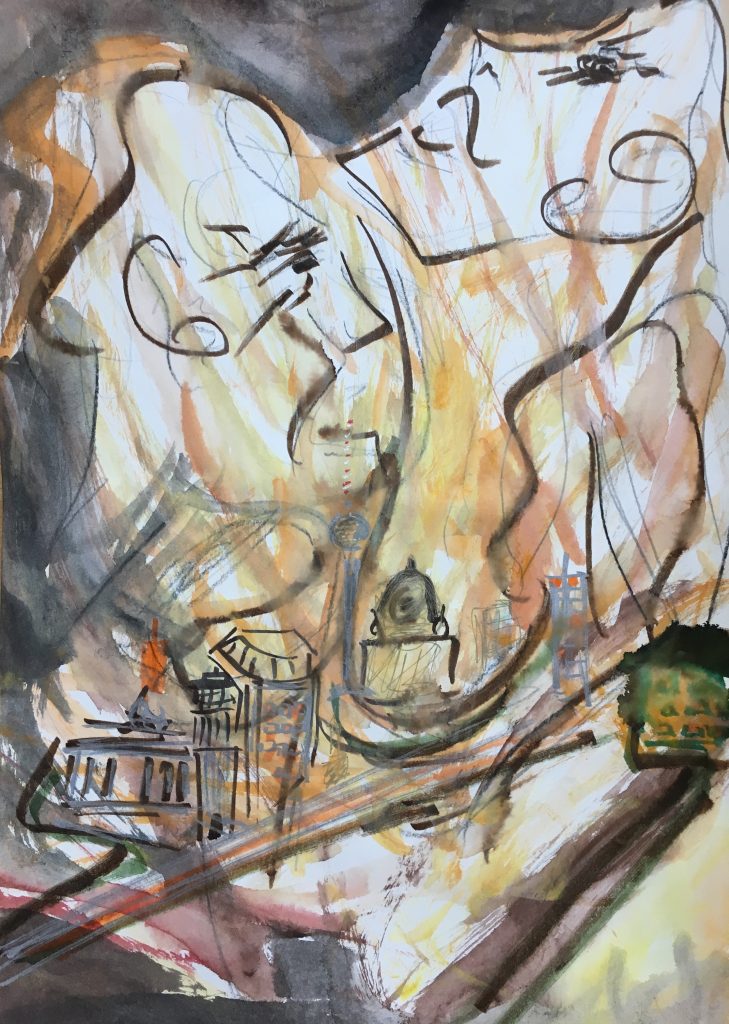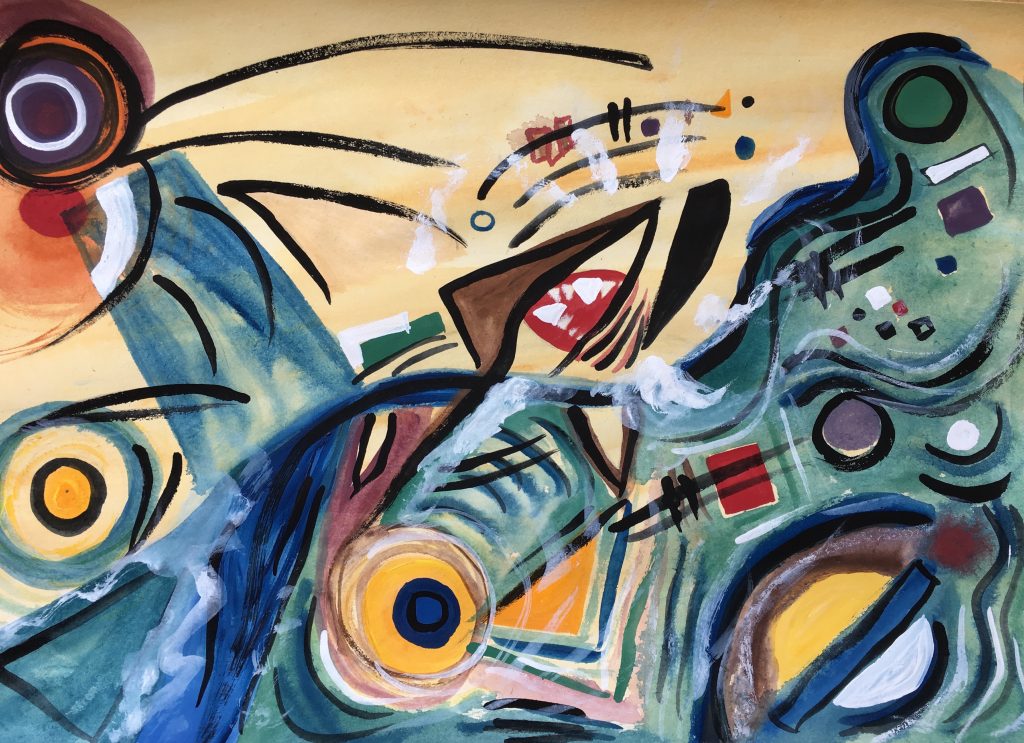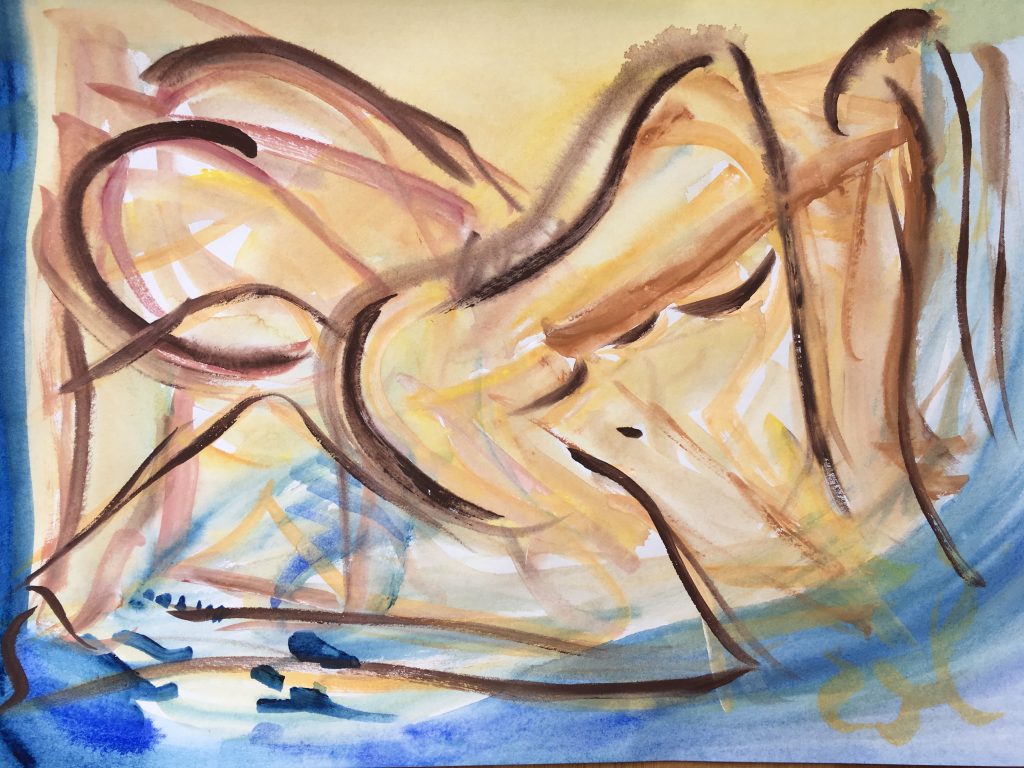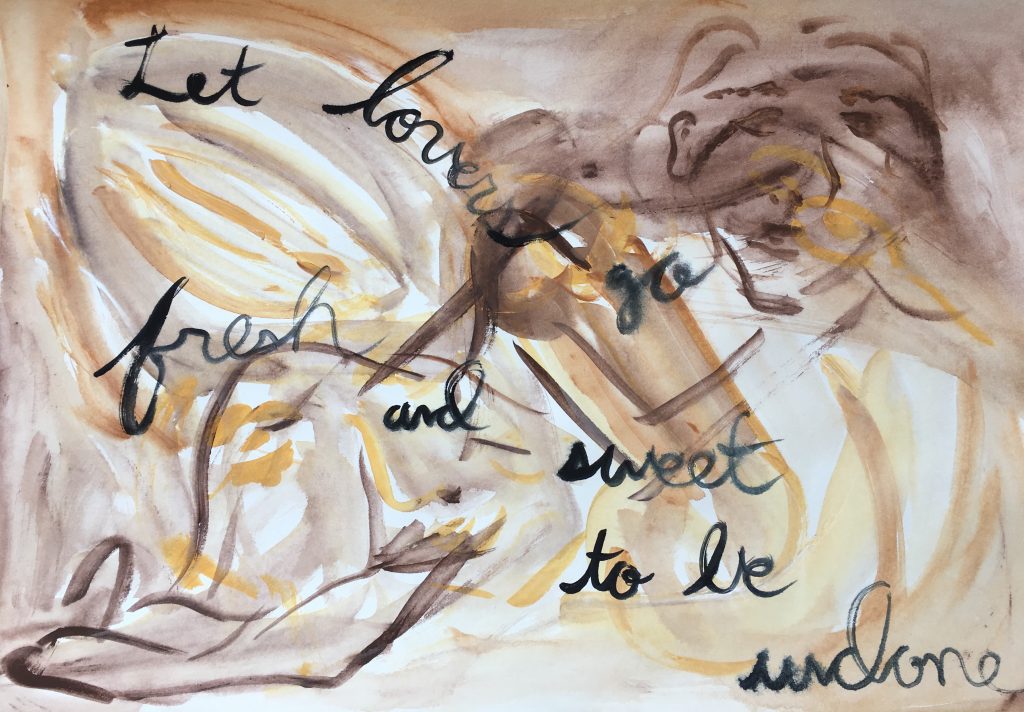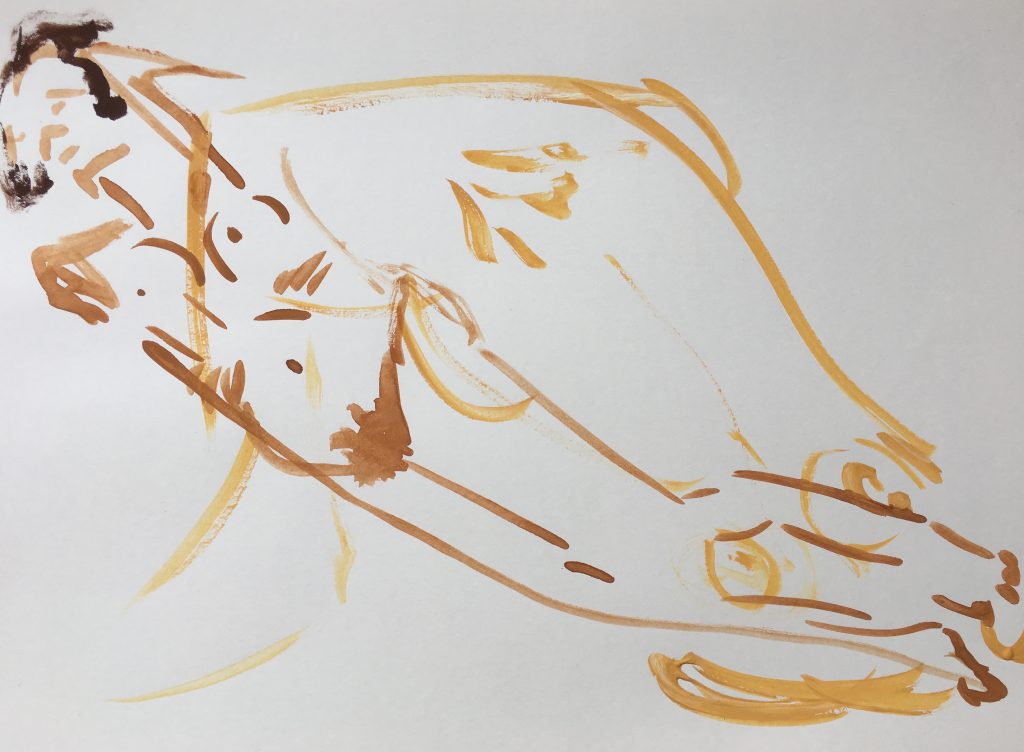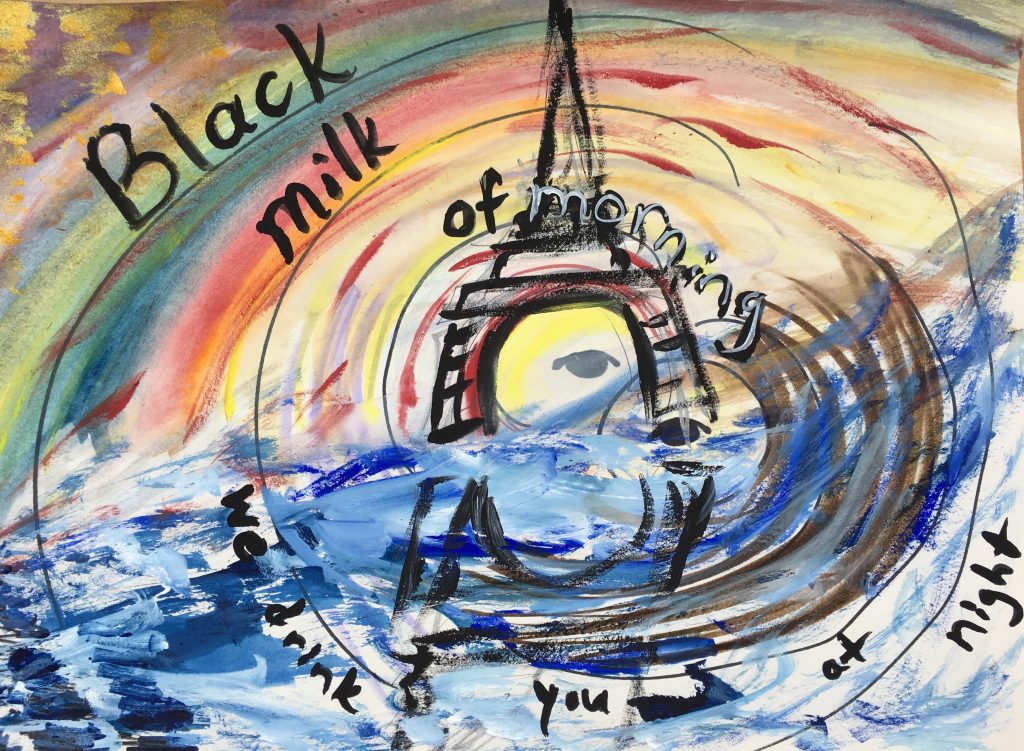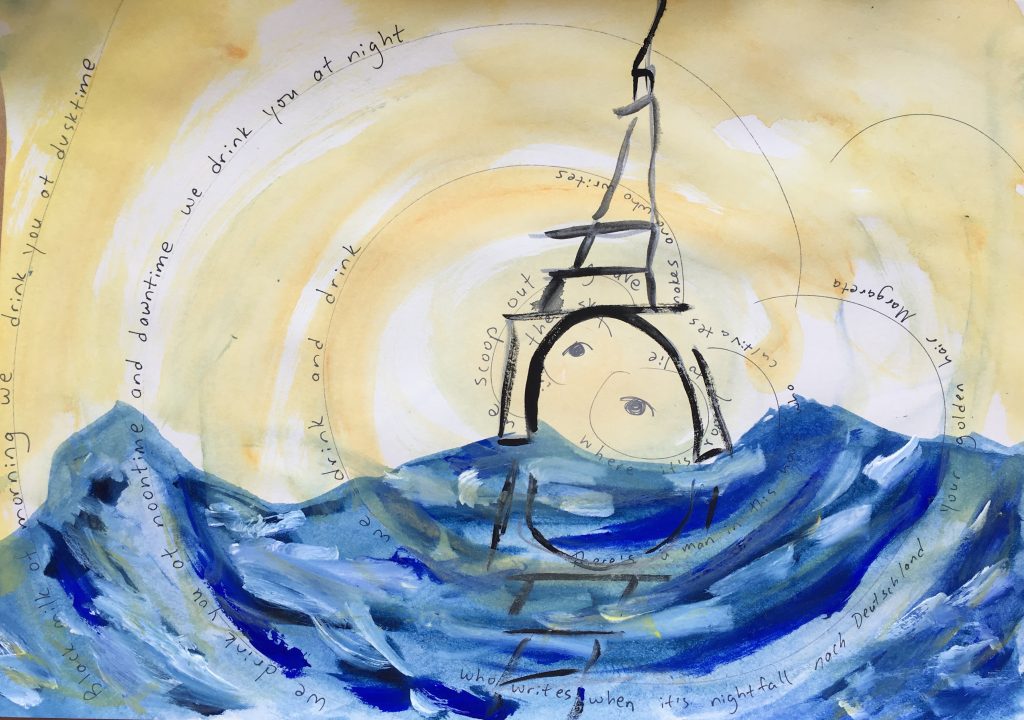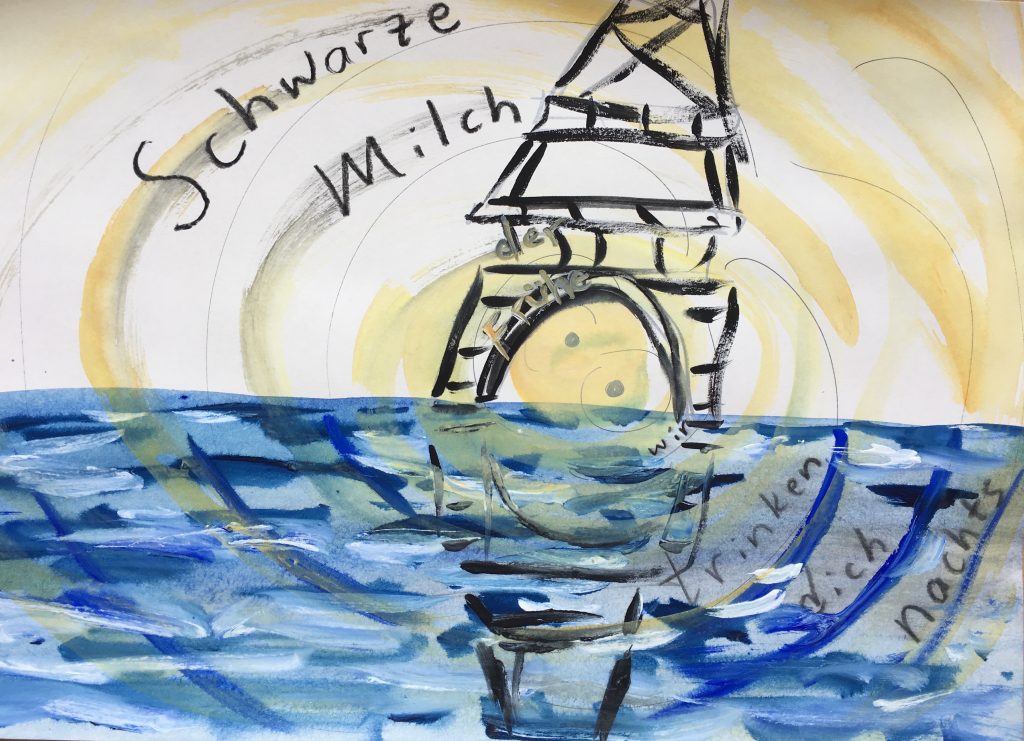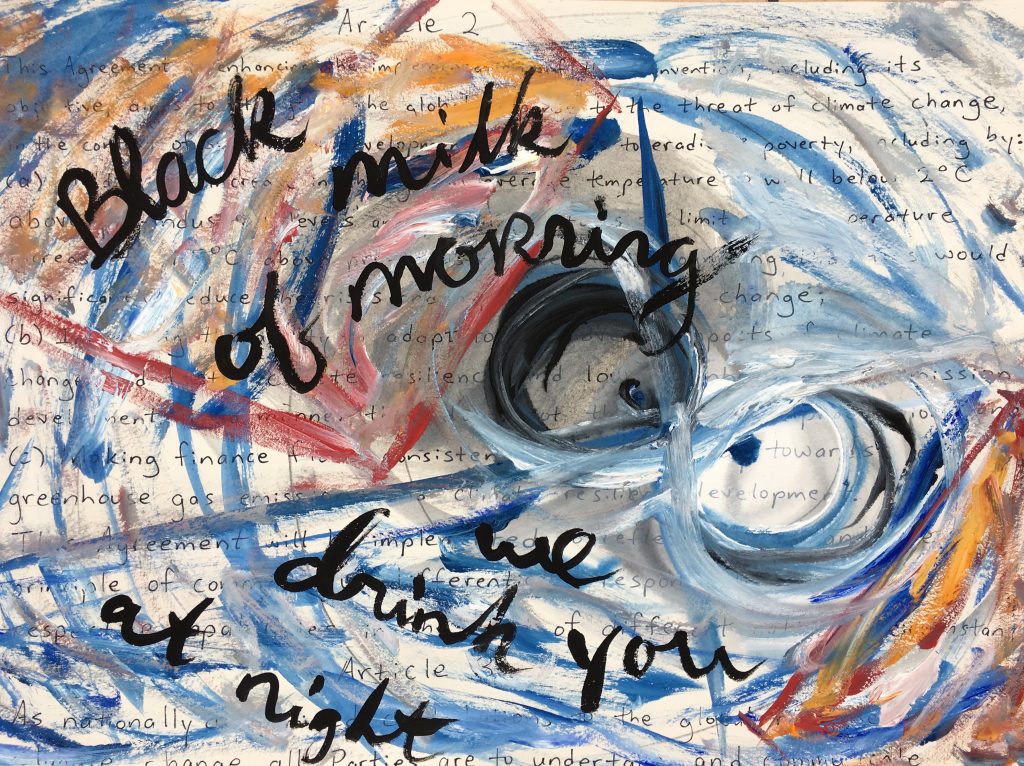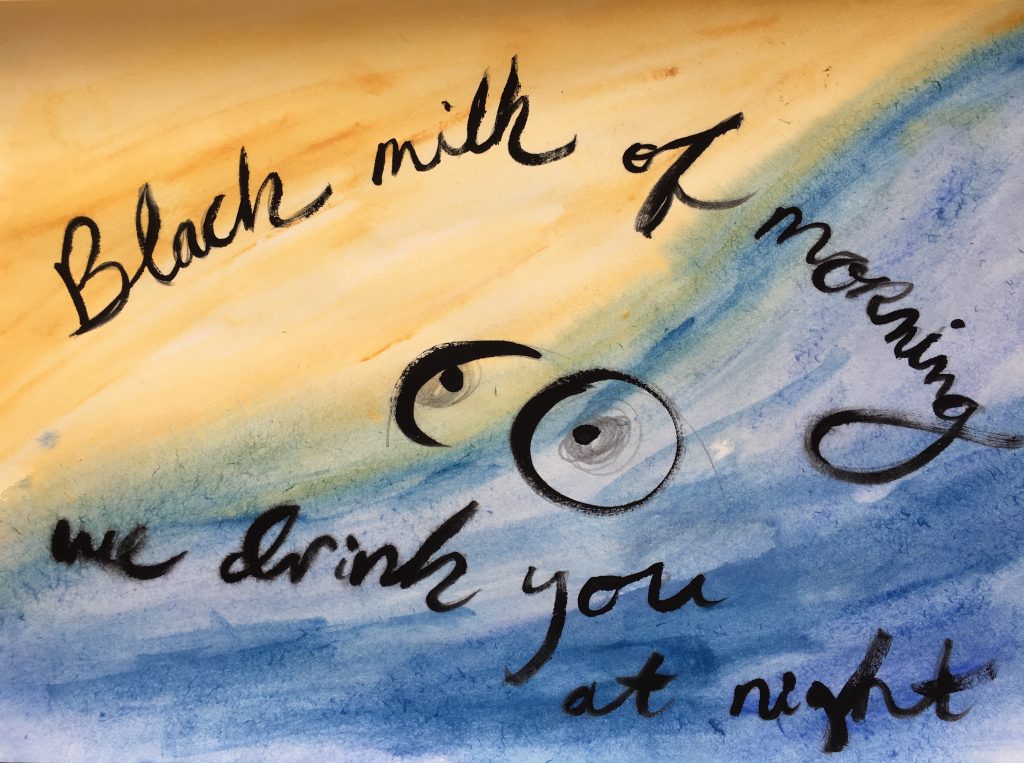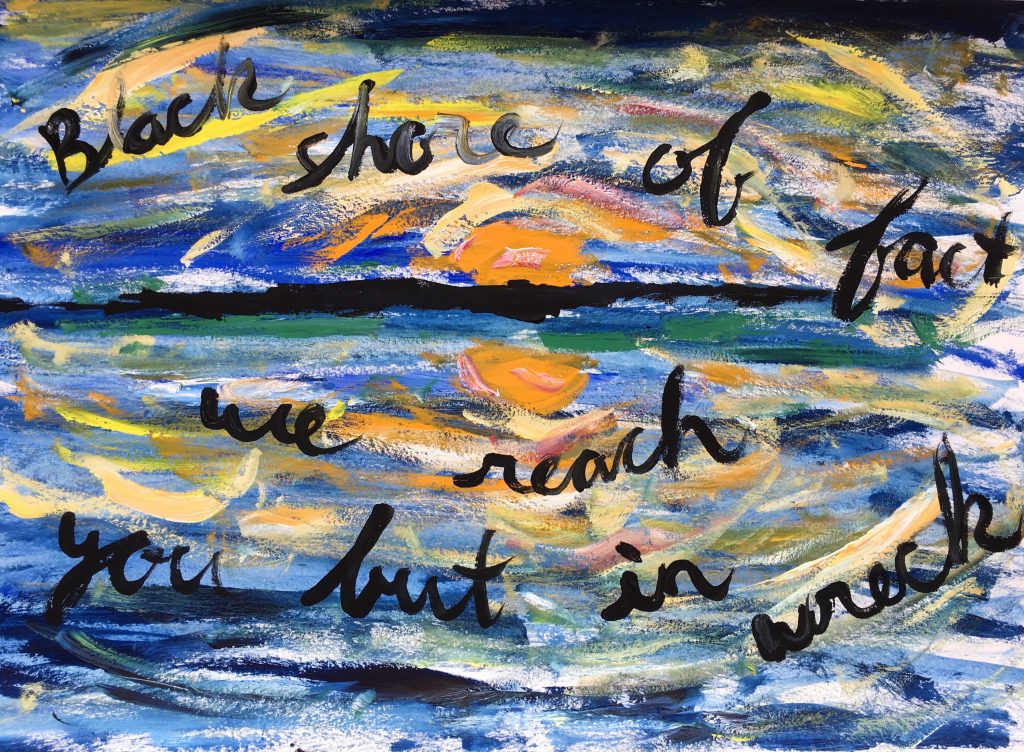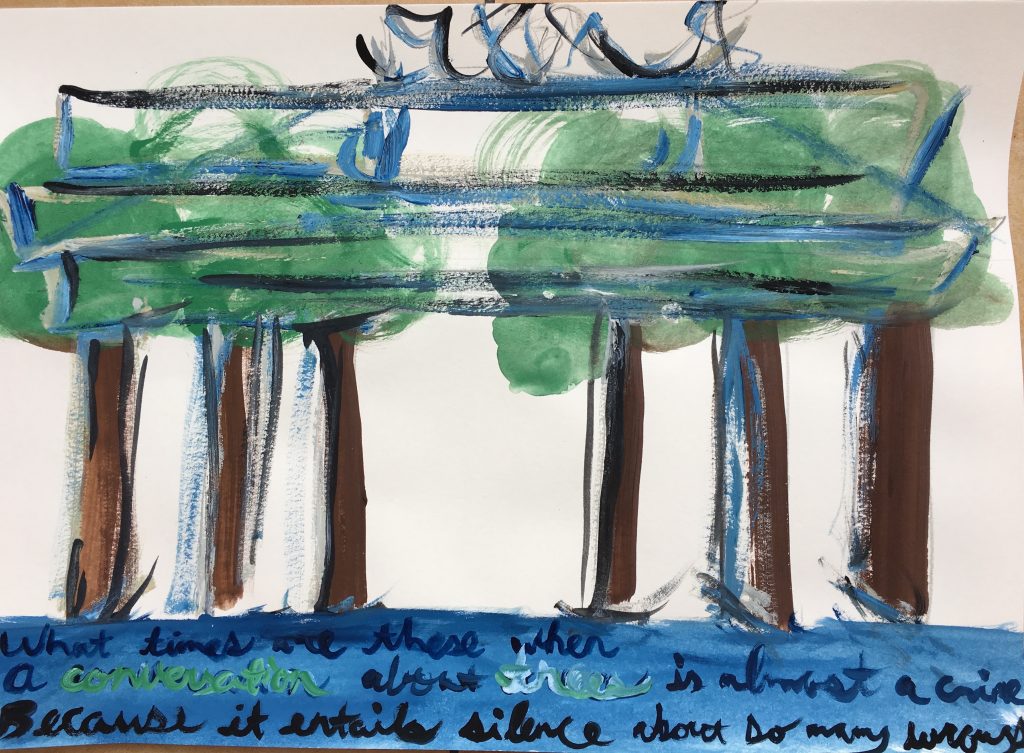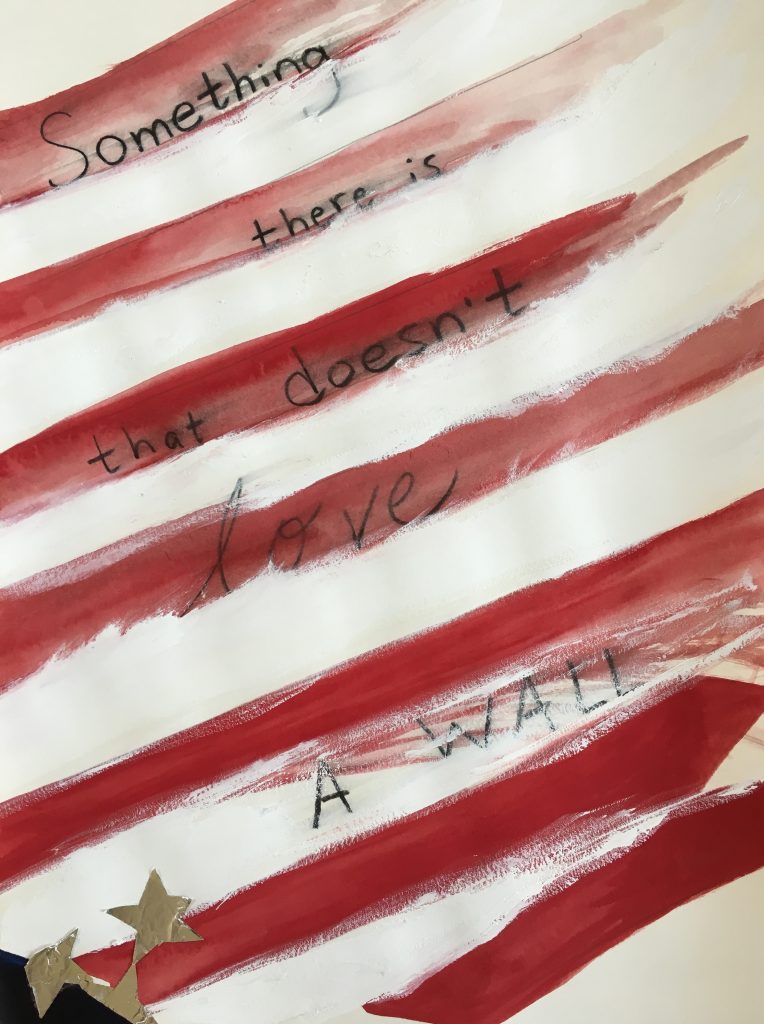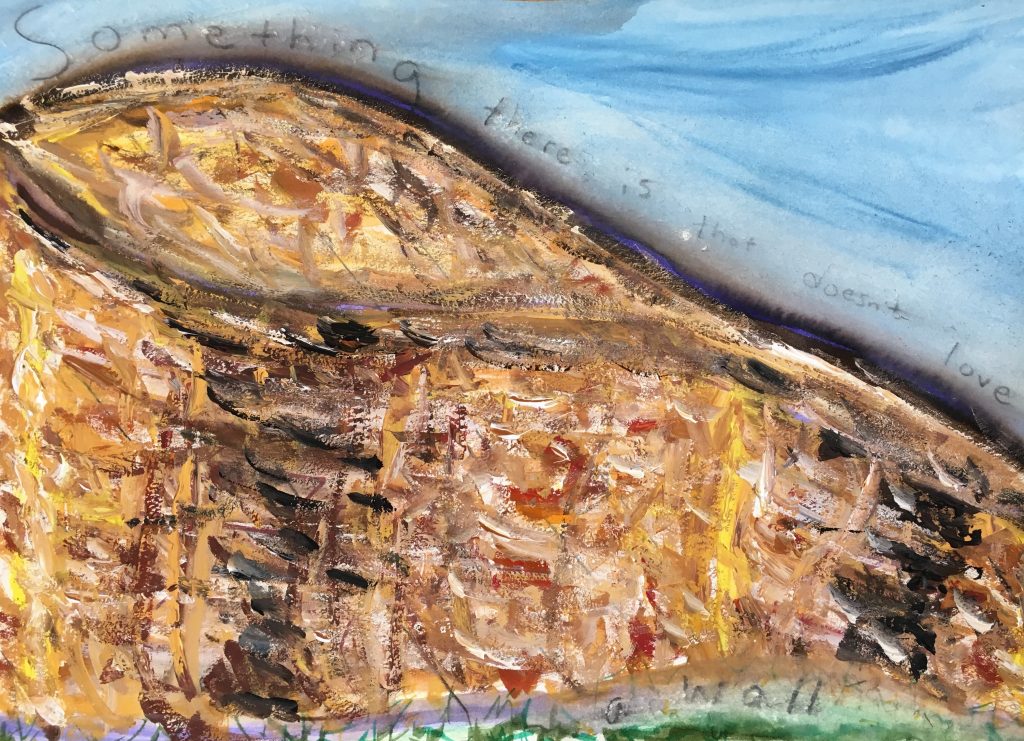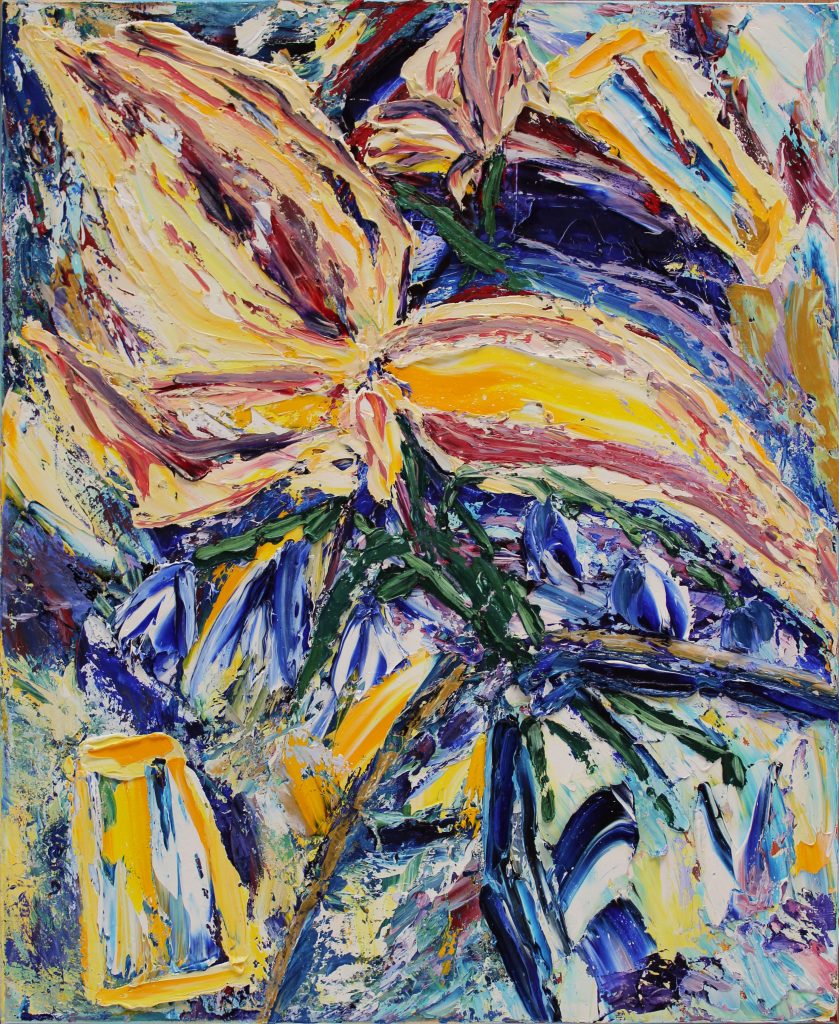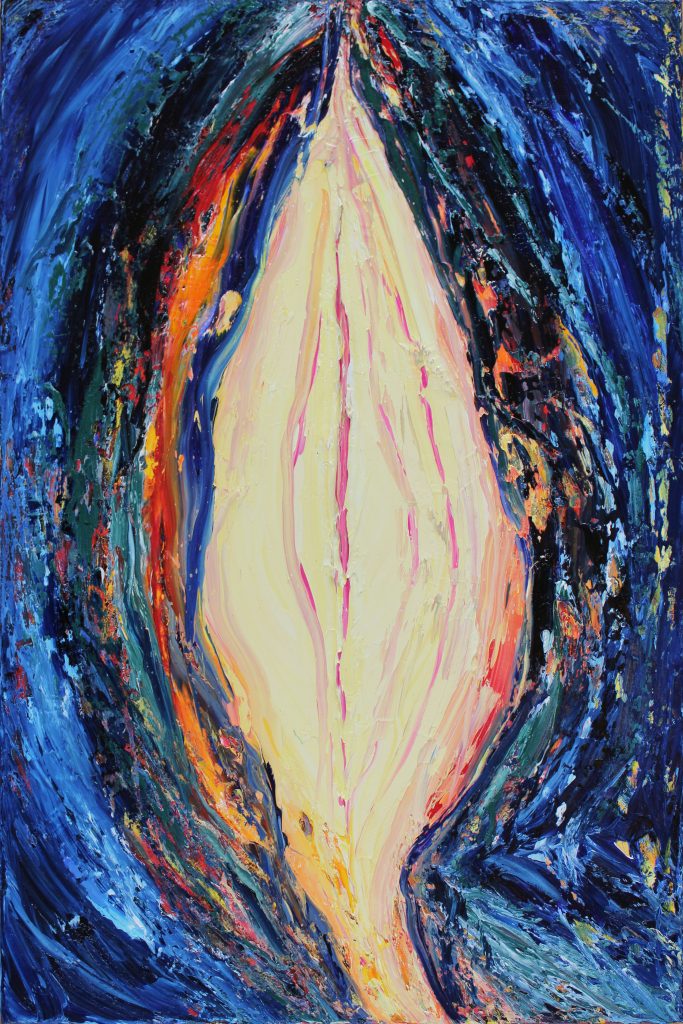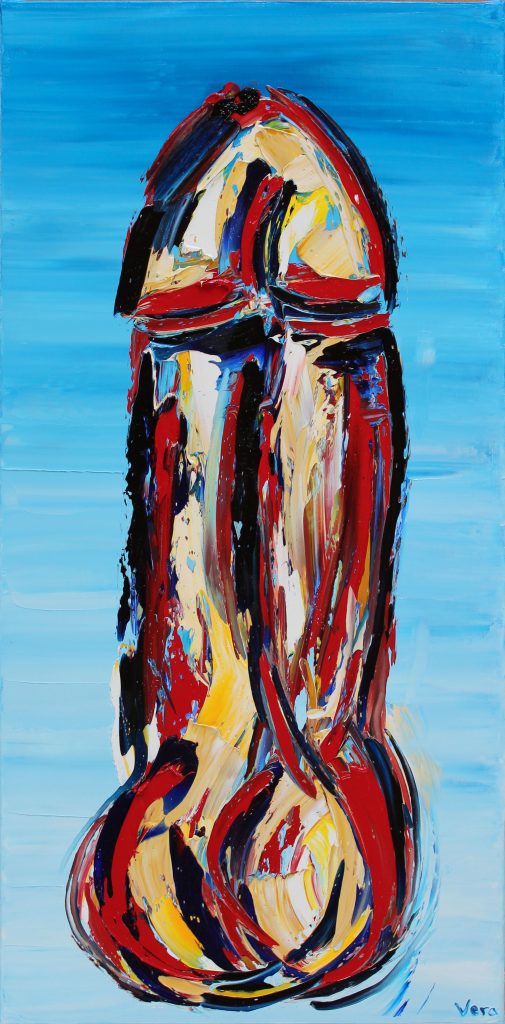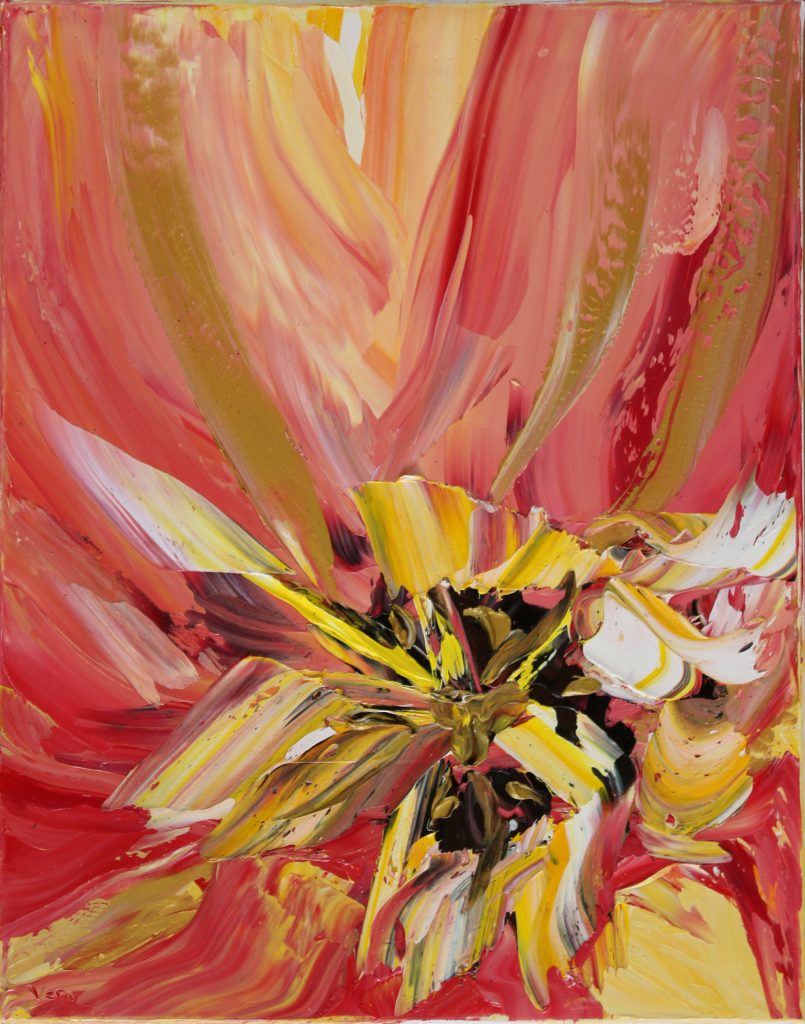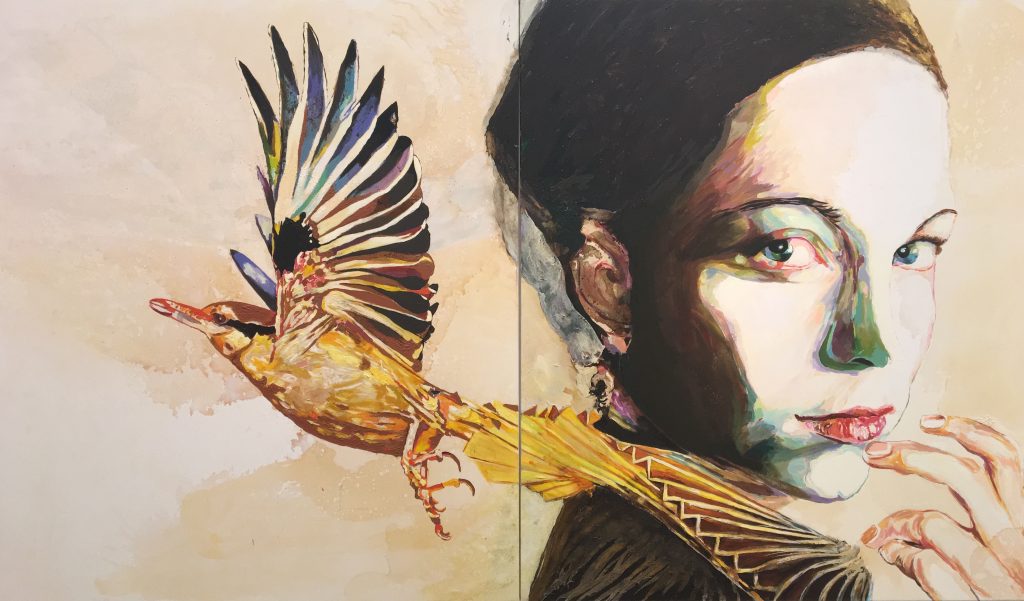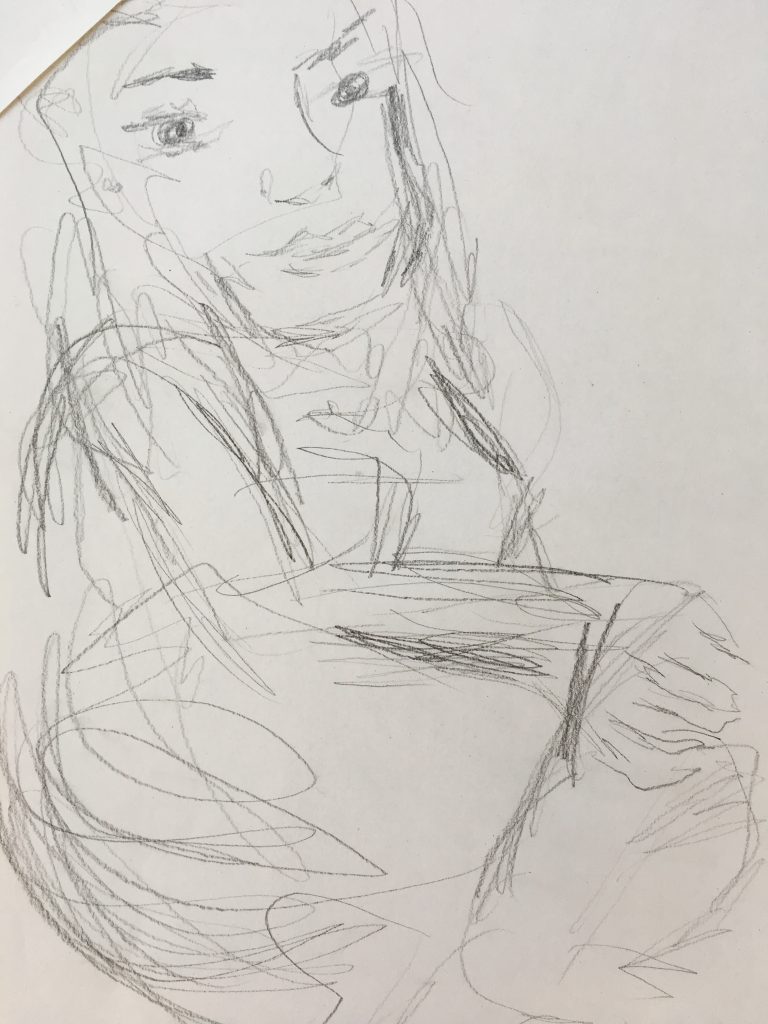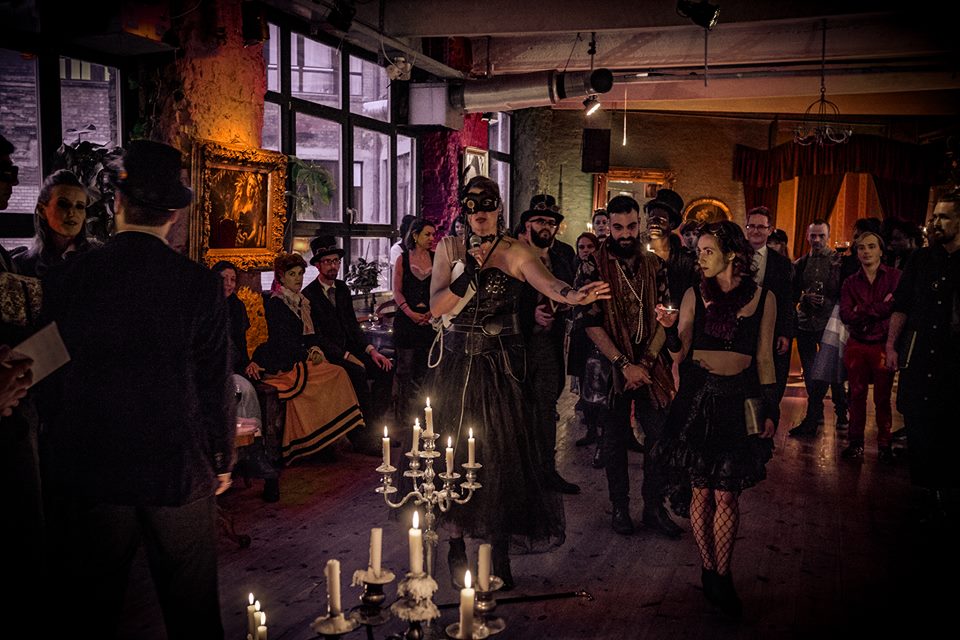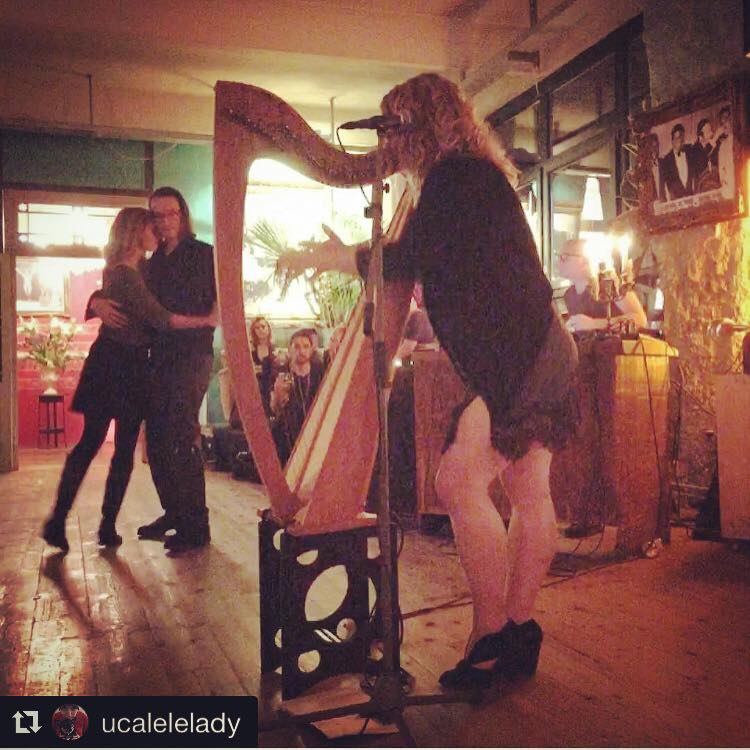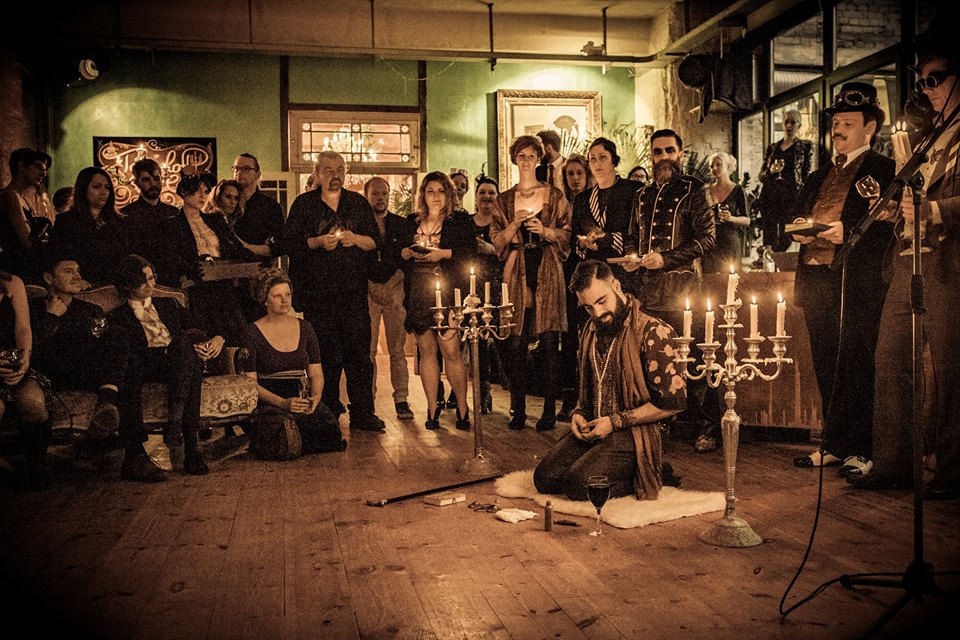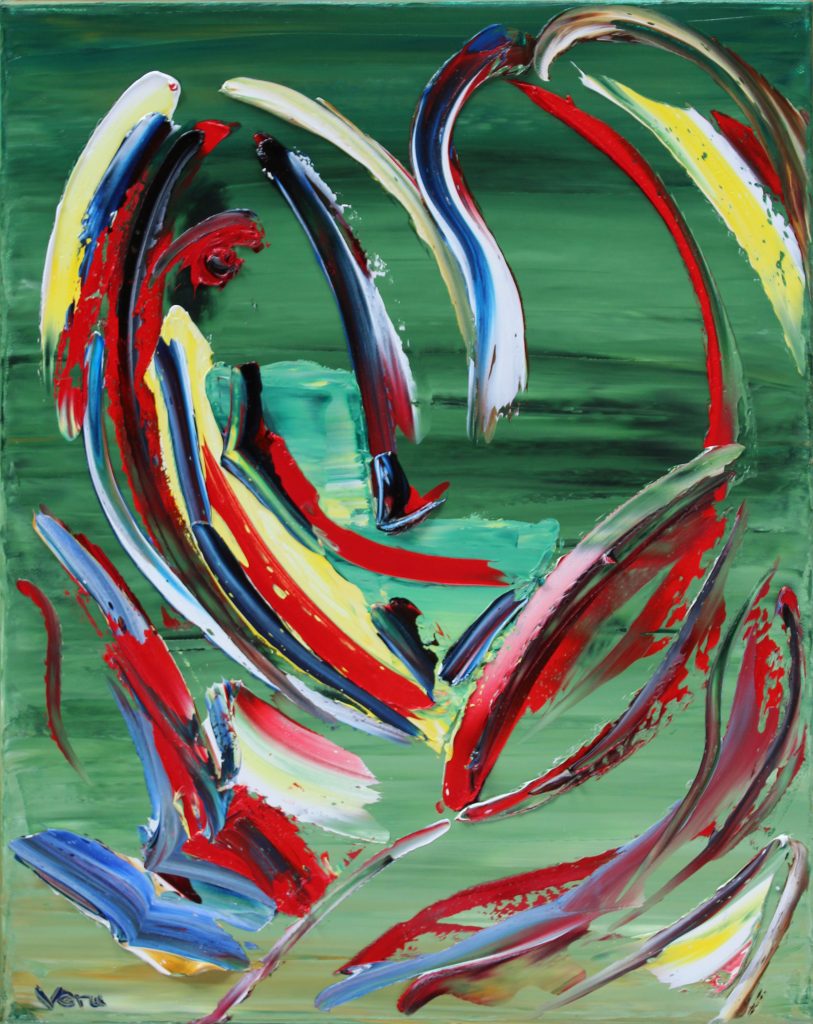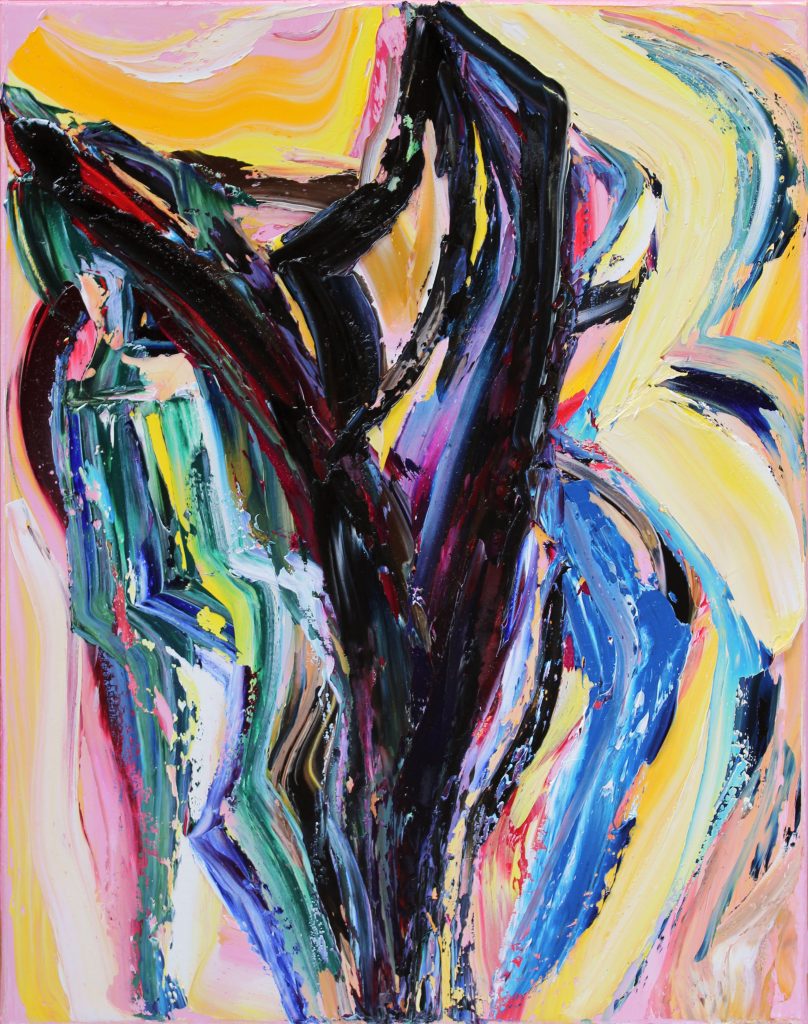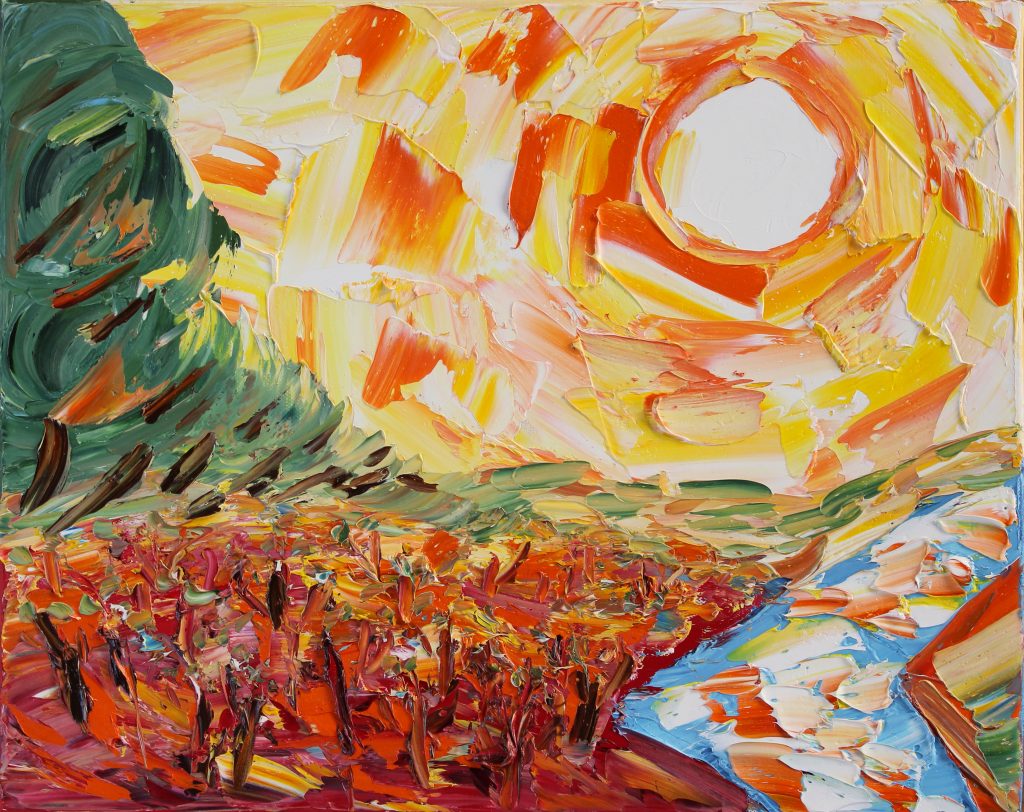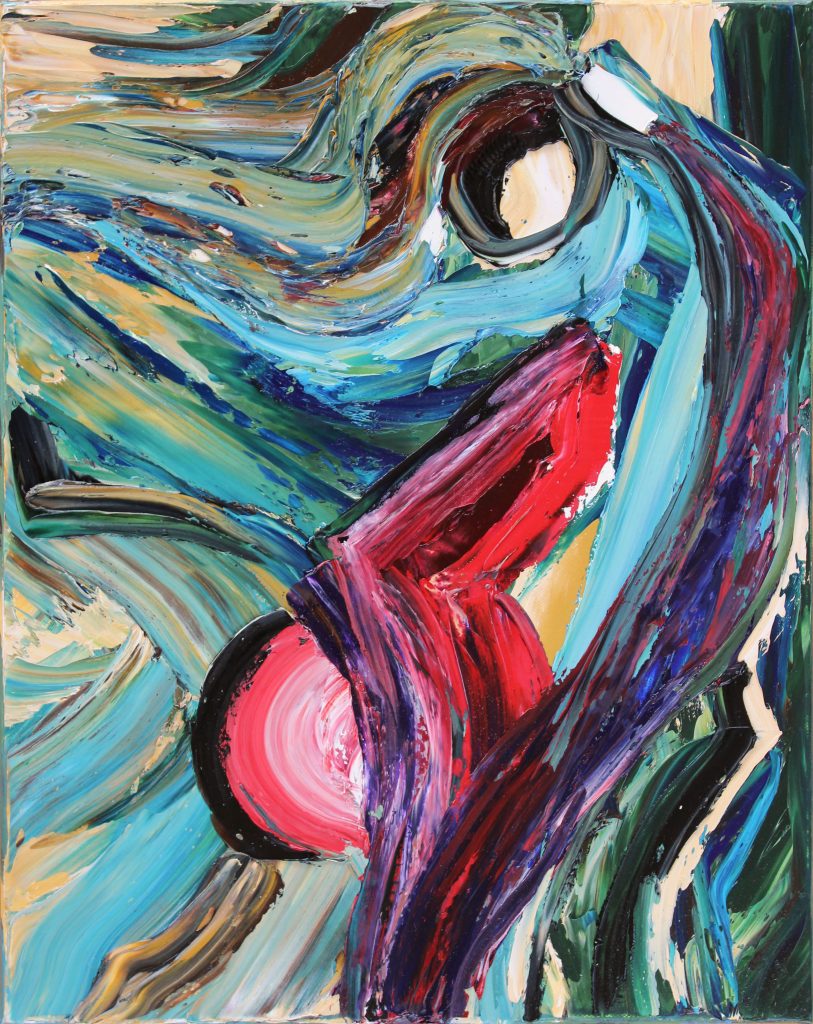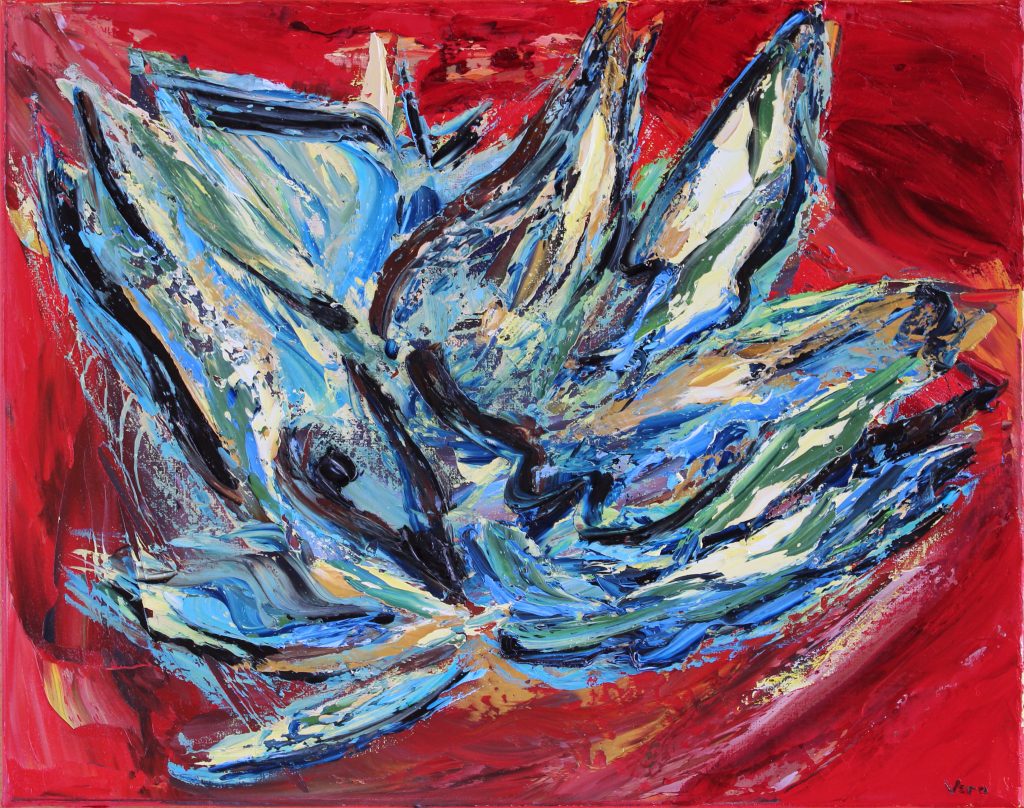i sing of Olaf glad and big, from is 5 (1926)
by e. e. cummings
i sing of Olaf glad and big
whose warmest heart recoiled at war:
a conscientious object-or
his wellbelovéd colonel(trig
westpointer most succinctly bred)
took erring Olaf soon in hand;
but–though an host of overjoyed
noncoms(first knocking on the head
him)do through icy waters roll
that helplessness which others stroke
with brushes recently employed
anent this muddy toiletbowl,
while kindred intellects evoke
allegiance per blunt instruments–
Olaf(being to all intents
a corpse and wanting any rag
upon what God unto him gave)
responds,without getting annoyed
“I will not kiss your fucking flag”
straightway the silver bird looked grave
(departing hurriedly to shave)
but–though all kinds of officers
(a yearning nation’s blueeyed pride)
their passive prey did kick and curse
until for wear their clarion
voices and boots were much the worse,
and egged the firstclassprivates on
his rectum wickedly to tease
by means of skilfully applied
bayonets roasted hot with heat–
Olaf(upon what were once knees)
does almost ceaselessly repeat
“there is some shit I will not eat”
our president,being of which
assertions duly notified
threw the yellowsonofabitch
into a dungeon,where he died
Christ(of His mercy infinite)
i pray to see;and Olaf,too
preponderatingly because
unless statistics lie he was
more brave than me:more blond than you.
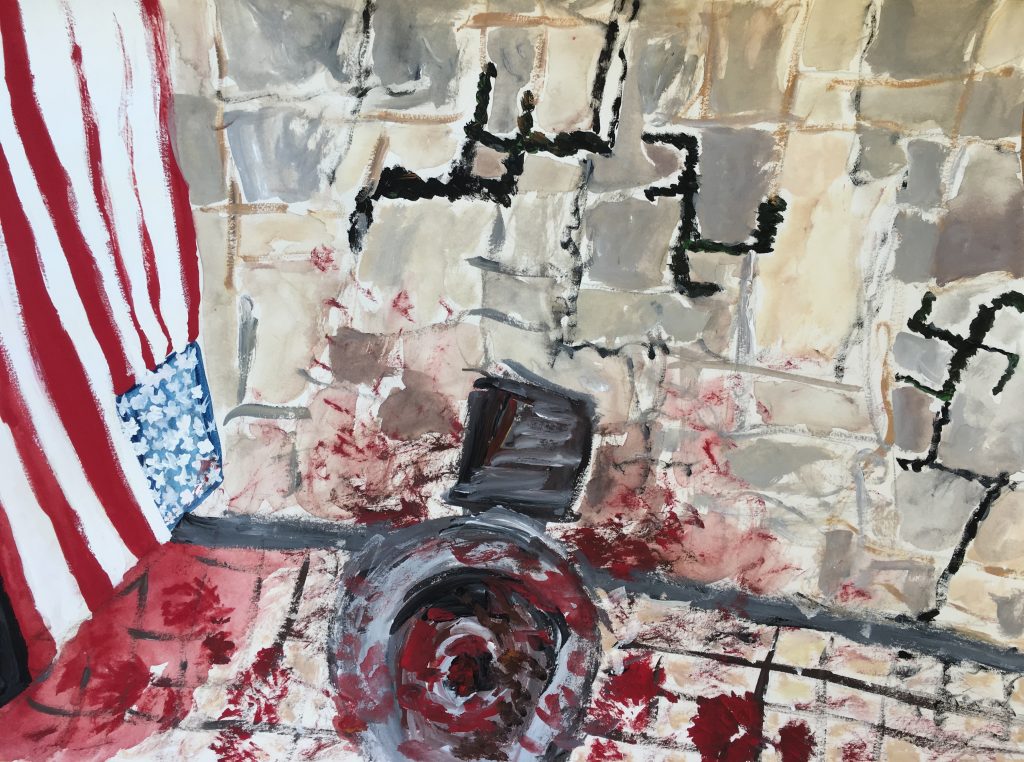 Graphite and gouache on A3 paper.
Graphite and gouache on A3 paper.
You could say the CIA Torture Report is here, archived on DocumentCloud (although such websites can be hacked). You could also say it’s not there, because a previous CIA torture report—the Panetta Review—allegedly proves the CIA lied to Congress, the Bush and Obama White Houses, and the public. That internal CIA torture report does something the CIA does not do: Acknowledges wrongdoing. But that CIA torture report was covered up. First by the CIA Director (John Brennan) who came after the one who oversaw it (Leon Panetta). Then, in a sense, by the Senate Intelligence Committee that refrained from leaking the report to the public through the press—keeping it in a safe for their investigative oversight work instead. And then by the Obama White House that thought it made the President look bad. The ACLU sought it, to no avail. Vice is also suing for both the Panetta Review and a less redacted version of the executive summary of the Senate Torture Report.
These ongoing Freedom of Information Act (FOIA) lawsuits are racing the clock of evidence destruction. If the CIA torture reports are not leaked, they are likely to be destroyed—along with the hope of future accountability for collaborators responsible for the war crimes they document—forever. The CIA repeatedly removed documents relevant to the Senate’s oversight work while the Committee was still investigating as it wrote and rewrote the report. It destroyed videotapes of torture, and no one was prosecuted for obstruction of justice in spite of ample evidence. Instead the torture program architects have been promoted—in one case to be second-in-command in the Trump Administration’s CIA. The cover-up would be worse than the crime, were the crime not so horrific.
If the available, heavily redacted declassified version of the official Senate CIA Torture Report that followed the Panetta Review is tame by comparison, its findings remain shocking: A cash award to the officer who had recently supervised an inmate’s freezing to death, rectal feeding without documented medical necessity, the use of supposedly lethal insects in confinement boxes that parallels Big Brother’s use of rats in a face box in 1984. When the Senate committee charged with exercising oversight got closer to documenting and exercising accountability regarding the full extent of CIA torture, the Agency hacked the Senators, surveilled sitting Senators and their staff, and effectively asked the Department of Justice to ruin their lives. (The Obama DOJ—which refrained from going after CIA torturers even in cases of detainee deaths—complied.)
Senate Republicans at the time opposed the Democrat-led investigation into CIA torture. Now they’re in control of the Executive branch and both houses of Congress. Earlier this month, the GOP chair of the Senate Intelligence Committee announced his staff is collecting copies of the watered-down torture report. The Trump Administration supports torture, and has begun returning copies of the report. President Trump’s support for torture sets the stage for future atrocities and he continues to make Bush-era torture program architects powerful in his Administration. The risk of the pro-torture Trump Administration returning Executive branch copies of the torture reports to the Senate Intelligence Committee is that FOIA obligations do not apply to Congress. If all the Executive branch copies are returned to the Senate, then it is possible that they may be legally destroyed. Leaking the documents to a publisher with a good source protection track record, such as WikiLeaks, is the best way to preserve the remaining war crimes evidence chain.
The Constitutional crisis of the United States running a global network of secret prisons free of due process, transparency, or oversight has passed. So too has the Constitutional crisis of the agency responsible for these black sites successfully retaliating against those charged with overseeing it. Now the U.S. finds itself in another brewing Constitutional crisis. Something glittery and sexy involving Russians and hookers. The newest train wrecks seem to make people forget the older ones. Forgive me if I yawn as the President and his staff are investigated for obstruction of justice—the same charge his predecessor’s staff, and the one before him, could have been investigated for if the political will had existed to prosecute torture and its cover-up. It did not.
Torture is out of the current news cycle. If the President and his men go to jail next week for obstruction of justice, it won’t be for covering up torture. But do Constitutional crises really pass? Or, if the government does not uphold due process, does it lose legitimacy under the Constitution? When checks and balances fail to work as designed, but the status quo grinds on—because the government is above the law—it implies that the Constitution’s meaning is aspirational at best. At worst, it provides the narrative frame for an actively evil regime to better exercise soft power as it dominates the world. Without Olaf—a brave, lone voice of reason, resistance, and the love for our common humanity that rejects war and its crimes from the inside—it’s impossible to know the difference.
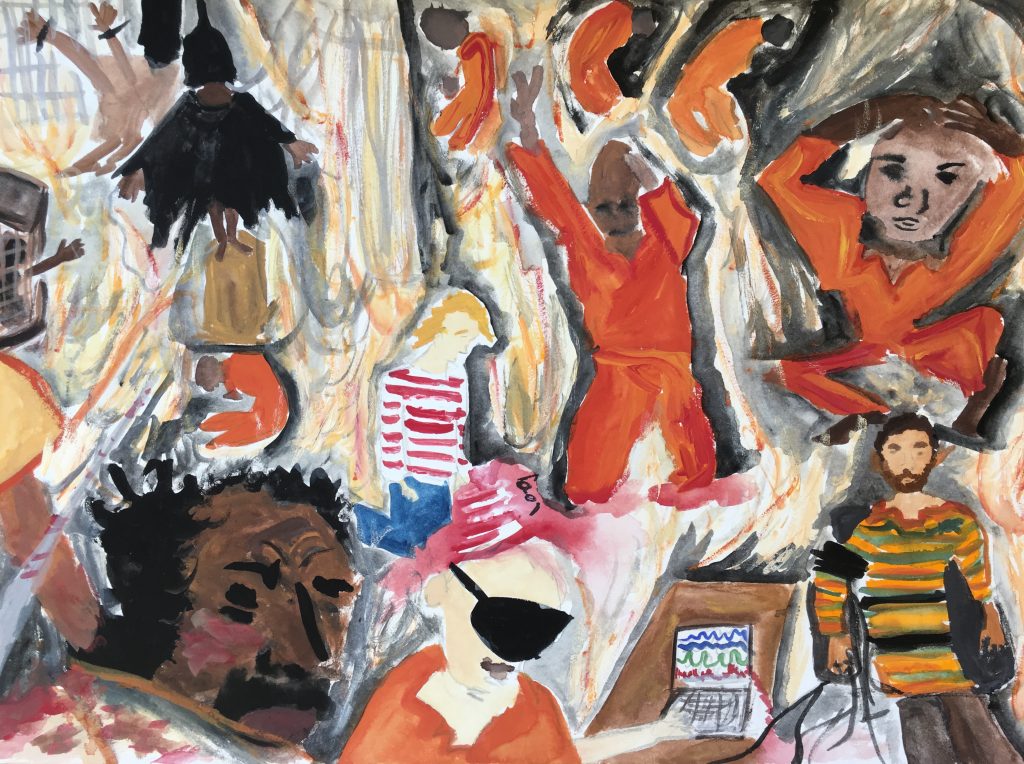
Graphite and gouache on A3 paper.
“where’s Olaf?”
i search for Olaf who has balls
whose clearest call rang out the truth:
a whistleblowing inside sleuth
his dearest colleagues heard his calls
(we tortured folks, and now must pay)
and hid his work from light of day;
but—though a snowglobe full of shit
did fall(first waking him with threats
and then his coms directing slant),
gaslit so ask for help he can’t
and everyone who knew him jets
to get out of the way the hit
and further under buses throw,
while courts and scammers steal his dough
to keep him locked into some grind—
Olaf(seeing his country find
the greater part of justice won
in push and kick from up above)
responds, without returning shove
“I will not hide what you have done”
White House Chief of Staff and all his ilk
cursed and steamed the lines out of their silk
but—though all kinds of special force
(and pride in showing no remorse)
interrogated, hacked, and showed
him pictures of his own brains blowed
until his family was sure
the man they loved had died before
this puzzled person who sings on
“the truth is its own clarion”
but everyone who lives has lied
and so they drove into his side
a thousand shivs of his own fibs
“no one believes a liar’s song”
our hero,feeling himself trapped
although by the humanity
that led him first alone to see
what’s right from wrong,felt his spine snapped
Christ(if you kept a copy safe)
i pray to hear;and Olaf,too
come out into the light and tell
the story of your living hell
unless you died:like troubles do.
